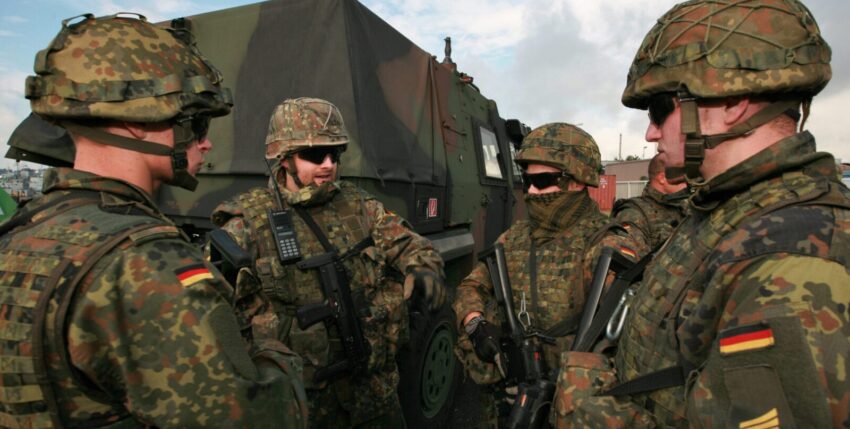The German Navy is pooling its infantry forces in a new but historically unprecedented organisation! As a result of the realignment of the Bundeswehr decided in 2010, the specialised infantry forces of the German Navy will be combined into a naval battalion from 1 April 2014. Specifically, this involves the naval protection forces, the boarding forces and the mine divers; the base will be Eckernförde.
As a multitool, the Sea battalion by the armed forces themselves:
As part of its alliance commitments, the German Navy can be found all over the world, particularly in international crisis management, conflict prevention and peacekeeping operations. Its tasks include the protection of sea routes as well as the protection of ships, harbours, strategically important positions and relief, rescue and evacuation missions. It also combats explosive ordnance under water and on land and protects against terrorist attacks. Quite a few missions are so specialised that in future they can only be carried out by one unit: the Sea battalion.
[...]
As the unit is made up of different components, the "tailored missions" described in Bundeswehr parlance are possible, in which fast-reacting and individually assembled specialised units and equipment go into action. In the Bundeswehr, this task force is nicknamed the "multitool of the navy" due to its diverse capabilities.
Press release of the German Navy, 26 March 2014
As we have already written elsewhere We believe that the latest developments in and around Crimea will have an impact on the Baltic Sea region. Out of 9 countries with access to the Baltic Sea (including Russia), 5 have at least an increased mistrust of the Russian interests that have recently been formulated with increasing self-confidence. This gives rise to a new, heightened need for security in Eastern Europe and the Baltic Sea region, which will also demand a contribution from Germany.
Against this backdrop, the pooling of infantry expertise in the German Navy has come at just the right time. The ability to robustly protect and secure its own harbour facilities and, above all, those of friendly states, could be in demand sooner than some people in Berlin would like: unlike piracy operations on the other side of the world, which take weeks to arrive, politicians and the Bundeswehr must be able to react quickly to the security situation in the Baltic Sea region - that's what we need. Sea battalion in Eckernförde is directly connected to Estonia, Latvia, Lithuania, Finland and Poland via the Baltic Sea.











3 responses
It is not about individual elements of the spectrum of naval forces, it is about the fact that a limited capability has been bundled with the naval battalion and - thank God - no one has come up with a stupid abbreviation or English term. The term sea battalion is perfectly acceptable!
Hmmmh, yes. The connection between the naval battalion and the current crisis seems a bit bold to me. First of all, it's about securing the sea route to the eastern Baltic Sea, and that's where the navy's defence against mines and submarines comes in,
thinks
the sailor
The thrust of the article seems only logical. But in addition to the reference to Berlin, we also need a reference to the capitals of the Baltic Sea countries. Do Copenhagen, Stockholm, Helsinki, Warsaw, Tallinn, Riga, Vilnius and Berlin have the same assessments here?